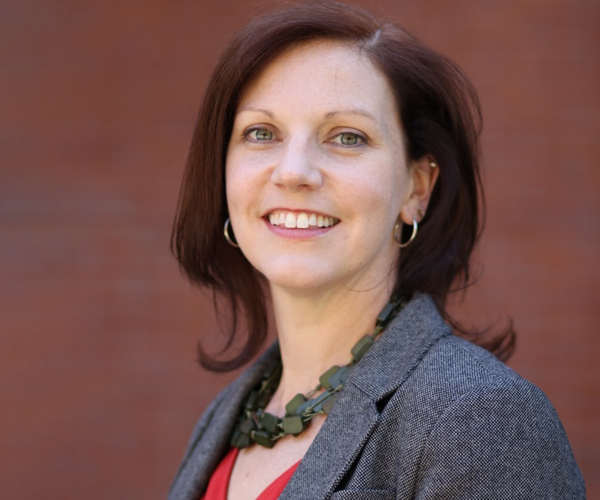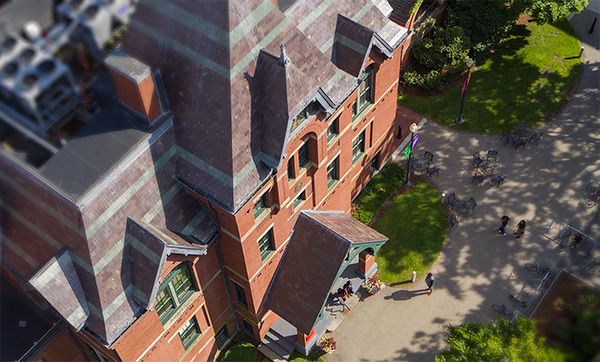Stephanie Ettinger de Cuba.
Stephanie Ettinger de Cuba recently joined the School of Public Health as a research associate professor in the Department of Health Law, Policy & Management. She also holds appointments in the Department of Community Health Sciences at SPH and the Department of Pediatrics at the Boston University School of Medicine.
A two-time SPH alum, Ettinger de Cuba received her MPH in international health (now global health) and her PhD in health services research. She is currently the executive director of Children’s HealthWatch, a research and policy network headquartered at Boston Medical Center with research sites in four states across the country. In this role, she works closely with advocates, policymakers, and other researchers to promote evidence-based policies to help children and their families thrive.
Her research focuses on the relationships between social policy, family economic mobility and ability to meet basic needs, such as food, housing and utilities, health care, and child care, and early childhood health and health care utilization. She is particularly interested in the experience of immigrant families with young children and the intersections of immigrant status and race and ethnicity as they relate to the impact of public policy on child and adult health.
Ettinger de Cuba sat down with us to share more about her work, what brought her to the field of public health, and what it means to return to SPH, this time as a faculty member.
What brought you to the field of public health, and specifically, to the work that you do now?
I arrived at my current work on a winding road of experiences, working in a wide variety of settings and roles, both domestically and internationally. Specifically, I came into working on policy from program outreach and evaluation, and over time I grew frustrated with the repeated systemic barriers and challenges the people and groups I was trying to help were experiencing.
In conversations discussing my frustrations, a colleague invited me to help her on some policy projects, where I was able to bring my insights to them. This work deepened my understanding of the potential for widespread harm or good that policy change could have in day-to-day lives and for whole populations. This experience was truly a catalyst for threading together my existing interests in young children, immigrant families, and health together with a wide variety of public policies.
Are you involved with any organizations in your community? What do you hope to get involved with at SPH?
I am involved with a variety of organizations in my community, including with my children’s schools, my town’s Diversity Task Group, a couple of local and international social service efforts, and some local sports groups.
At SPH, I am hoping to help support DEIJ efforts, get involved with the Activist Lab, and support student efforts at the School. For example, potentially working with international students or supporting students learning about qualitative research methods.
As a two-time alum of SPH, what does it mean to you to now be joining the school as a faculty member?
BUSPH keeps drawing me back! I have been a student and a staff member through times of change at SPH. I have seen the school grow and transform over the years, and it will be very exciting and an honor to join SPH as faculty and be part of taking the school to its next phase, bringing those various perspectives with me.
Looking forward, what are you most excited about with this new role?
Learning and collaborating to drive change. The SPH community is filled with creative, brilliant, kind, and passionate people with a huge variety of skills. I am really looking forward to learning from, working with, and being more deeply part of this amazing group, to help make a difference locally, nationally, and around the world.

 Meet the largest cohort of new faculty in school history
Meet the largest cohort of new faculty in school history